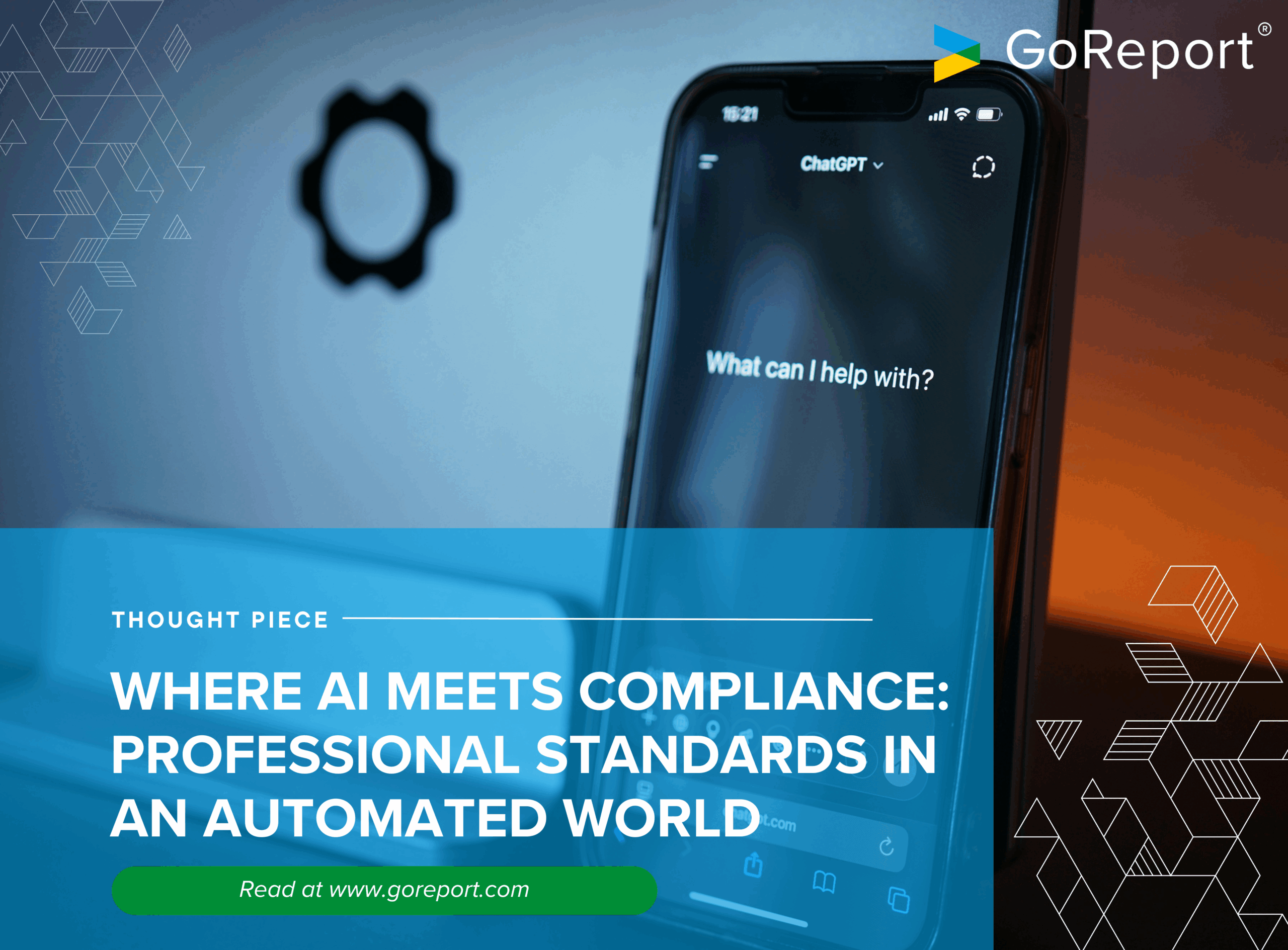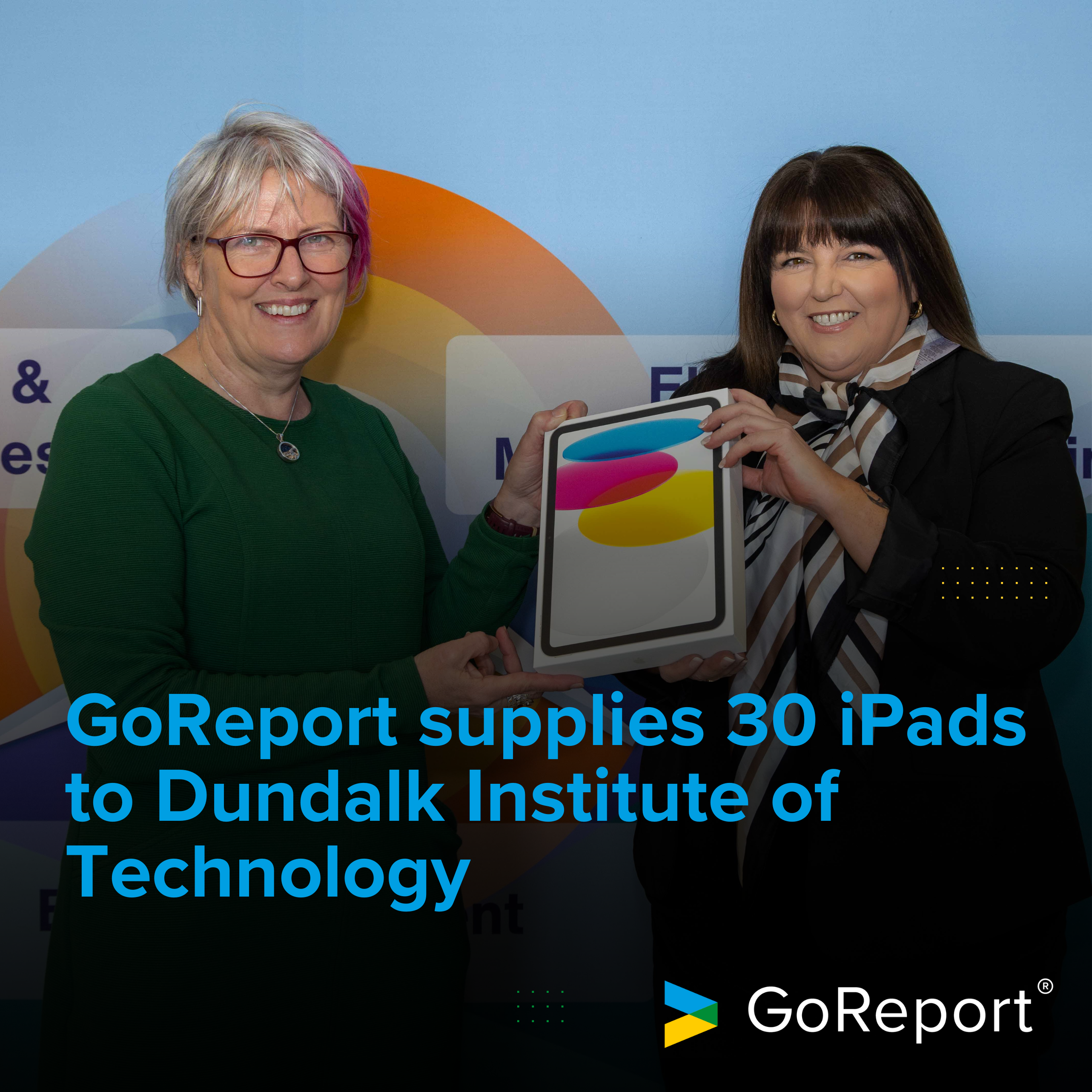Where AI Meets Compliance: Professional Standards in an Automated World

Technology rarely asks permission before it arrives. And artificial intelligence? It’s not just arrived – it’s already in the front seat, navigating. For both residential and commercial surveyors, this presents both a challenge and an opportunity. You’re trained to trust your judgement, to spot nuances others might miss, and to put your name – and PI cover – on what you see and say. So, what happens when AI enters the workflow? Who’s ultimately accountable when algorithms start doing some of the heavy lifting?
AI is already part of the surveying profession, but often in ways that are subtle or rarely discussed. Auto-valuation models. Document parsing. Transcription software. Data summaries. These tools are working in the background, streamlining tasks that once consumed hours of a surveyor’s time, allowing them to focus on the more human tasks.
With RICS issuing new guidance on the responsible use of AI later this year, the conversation is no longer theoretical. It’s real, it’s regulatory, and it cuts to the heart of how surveyors work, as well as how they’re expected to take responsibility.
The tools are changing, but are we?
The average surveyor today already interacts with AI more than they realise. Think of auto-generated summaries, machine learning behind search tools, smart valuation algorithms. Even transcription apps can now infer tone, segment themes, and prioritise highlights. We’re outsourcing not just typing, but understanding.
The question is no longer if AI is part of your workflow. It’s where, how, and under whose judgement. After all, no one is too good for technology, and you must get with the times before your competitors get too far ahead.
This is the pivot point where RICS wants to intervene; not to slow the shift, but to shape it. Their new guidance aims to help surveyors use AI without surrendering the core values of the profession: rigour, transparency, and trust.
And let’s be honest – these values are under pressure. With AI being utilised across the industry, the human touch and expertise is not just valued, but extremely necessary. Lose it, and you’ll be left offering a service that’s faster, maybe, but far less trusted. You’ll be indistinguishable from the tech, when what clients really want is you.
RICS’ stance: Guardrails, not handcuffs
The upcoming Responsible Use of AI standard, expected later this year, will do something long overdue: set in stone what ethical, competent AI use looks like in a professional surveying context.
According to RICS, the goals are clear:
- Maintain human oversight over all professional decisions.
- Build trust in how data is used, stored and interpreted.
- Ensure clients remain fully informed, not just recipients of polished outputs.
Notice what’s not here: a ban on AI, a checklist of banned tools, or a call to go analogue. The tone is practical, but not against the use of tech. It recognises that automation can increase accuracy, save time, and improve safety, but only if used with competence and compliance.
No matter what tech you use, you are still the regulated professional. If AI helps, that’s fine. But if it fails? It’s your signature on the report. Your name on the insurance claim. Your client is calling with questions.
This is a wake-up call: not against innovation, but against blind adoption and lack of responsibility.
Professional judgement can’t be automated
AI isn’t just a faster calculator or a better spreadsheet. It makes decisions, and when it does, the temptation grows to lean on it, to trust its black-box wisdom.
Your professional signature is more than a legal formality. It carries weight because it assumes you exercised judgement. That you questioned outliers. That you understood the limits of the data. That you took context into account.
After all, AI doesn’t do context, it does correlation and algorithms. AI runs on data. That’s its power, and its risk. Surveyors handling client properties, insurance valuations, or housing association assets now deal with information that may flow into third-party tools and opaque systems.
What happens when that data is re-used, leaked, or reinterpreted by another model?
The standard is pushing firms to:
- Revisit their data handling protocols.
- Strengthen risk management.
- Reassess procurement processes for digital tools.
These aren’t tech issues, they’re reputational ones. The firms that get this wrong may not notice at first, but customer trust decays slowly, then all at once.
Let’s be blunt: Most clients don’t know – or care – if you’re using AI. As long as you get the job done at a high standard, they’re happy. However, they will care if something goes wrong and there’s no clear line of accountability.
RICS urges surveyors to use open, plain-language communication with clients about what tools are being used, what role they play, and where human oversight remains. Not because it’s trendy, but because trust in professional services is built on understanding, not assumptions. Think of this like explaining your methodology in a report: it doesn’t weaken your authority, but it certainly legitimises it.
What does this mean in practice?
Compliance in the AI era goes beyond box-ticking; you must remain actively engaged and aware at every step. The RICS guidance is asking you to do something more meaningful than just update your process document. Rather, it’s asking you to interrogate your relationship with the tools you’re using, and to know where the line between AI assistance and human responsibility lies.
This isn’t to say you shouldn’t use AI. It is extremely helpful in taking away admin and allowing surveyors to focus on the heavy lifting. The extra time allows for taking on more clients, business growth and staying ahead of the competition. You absolutely should take advantage of technology, but you must simply be mindful of how you go about it.
In practical terms, this means reasserting control over how you use AI in your work. It’s not enough to know that a tool is labelled as “compliant.” You need to understand what it’s doing under the hood: what data it’s handling, what assumptions it’s making, and what role it’s playing in your conclusions. If AI suggests a figure or flags a risk, are you in a position to explain why? Could you defend that outcome under scrutiny – not just technically, but professionally?
RICS is asking for more than automatic compliance, it wants surveyors to think carefully about how they use AI. That means checking the accuracy of AI outputs, making sure they meet professional standards, and taking responsibility for every report. It also means reviewing internal processes, watching for bias, and protecting data at every stage.
Compliance and professionalism don’t mean avoiding new technology; they mean ensuring the tools you use meet the same standards you’ve always upheld.
AI won’t replace the judgement of a qualified surveyor, but it will test it. RICS isn’t asking you to turn back the clock to the days of only using pen and paper. It’s asking you to lead, to show that modern tools and timeless principles don’t have to be in conflict.
Where AI Meets Accountability in Practice
Technology should never replace professional judgement, but it can make that judgement sharper, faster, and more focused. That’s the real benefit tech and AI brings to surveyors today. From streamlining data collection to cutting through admin and surfacing insights faster, AI has the potential to lift the burden of repetition and free up time for what matters: applying experience, interpreting context, and delivering trusted advice. The key isn’t resisting automation; it’s simply making sure it works on your terms.
At GoReport, we believe that technology works best when it reinforces traditional professional standards, not weakening or ignoring them altogether. Our focus is on giving surveyors the ability to simplify the admin while staying firmly in control of the output. The right tools should save you time, but never at the cost of trust, or accountability. That’s why we’re committed to building tech that aligns with the traditional principles surveyors have always stood for: clarity, competence, and responsibility. Because no matter how smart the software gets, your judgement is still what clients value most.
If you’re rethinking how tech fits into your workflow, we’d love to show you how GoReport can support that journey on your terms, and in line with the standards you stand by. Get in touch to start a free demo.







